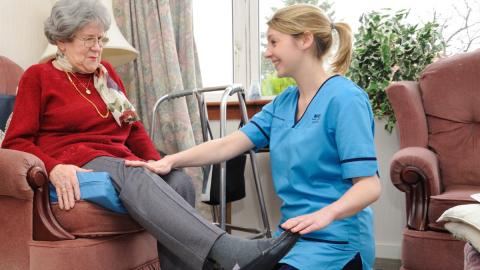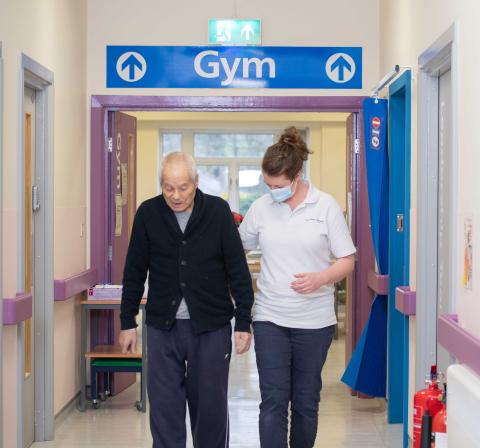Workforce shortages lead to less time spent on service improvement, reduced clinical outcomes, longer waiting times, increased demands elsewhere in the system and pressure on staff
Insufficient staffing
In a recent CSP survey of NHS physiotherapy managers, 93 per cent said that they didn’t have sufficient staff to meet need or provide services within recommended guidelines.
Seventy-seven per cent said that workforce constraints are leaving patients waiting longer for treatment than they should be according to clinical guidance and policy.
Nearly half said that people who need the service are not able to access it.
Physiotherapy workforce shortages are leading to increased demands elsewhere in the system (e.g. social care, primary care, secondary care). Nearly 65 per cent of respondents cited this as an issue.

One physio's story
A physiotherapist – who has mainly worked with stroke patients in the NHS in hospital outpatients and community practice – said:
'Over the past three decades I have seen a decline in the quality of services we can offer patients, and an increase in the complexities of health issues that patients present.
For me the conditions we are having to work in and the eroding standards of therapy in the NHS are my greatest concern.
'Coming out of Covid, we needed to meet clinical guidelines with huge demands, alongside organisational pressures to reduce length of stay, waiting lists, and added challenges of health complexities increasing exponentially. We are all struggling, which has a direct impact on patients.
'Health workers are juggling conflicting goals, on the one hand striving for clinical excellence and patient care, and on the other reducing length of hospital stay and waiting lists. Our patients deserve better. There are ongoing financial and economic hardships faced without rehabilitation, problems of affordability of care, relatives having to give up work to become carers with the health implications of restrictive lifestyles.
As frontline staff, we are under extraordinary pressure, and increasingly we are suffering burnout or choosing to leave the profession.
'A lot of people are leaving after the pandemic. Due to burnout, I have recently taken a demotion and moved from a clinical lead in two stroke units to a lesser-paid role with less responsibility in a different hospital trust.’






































